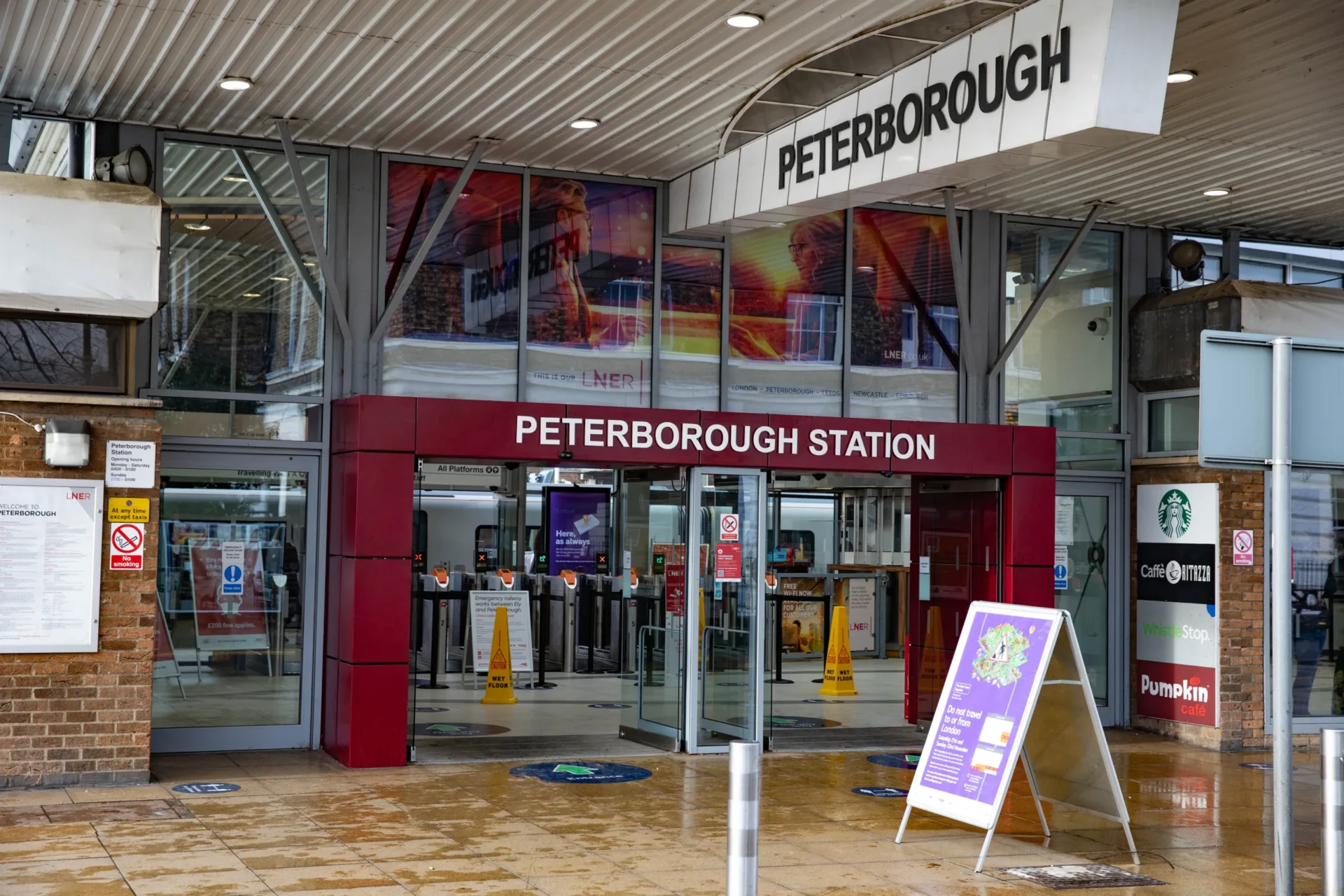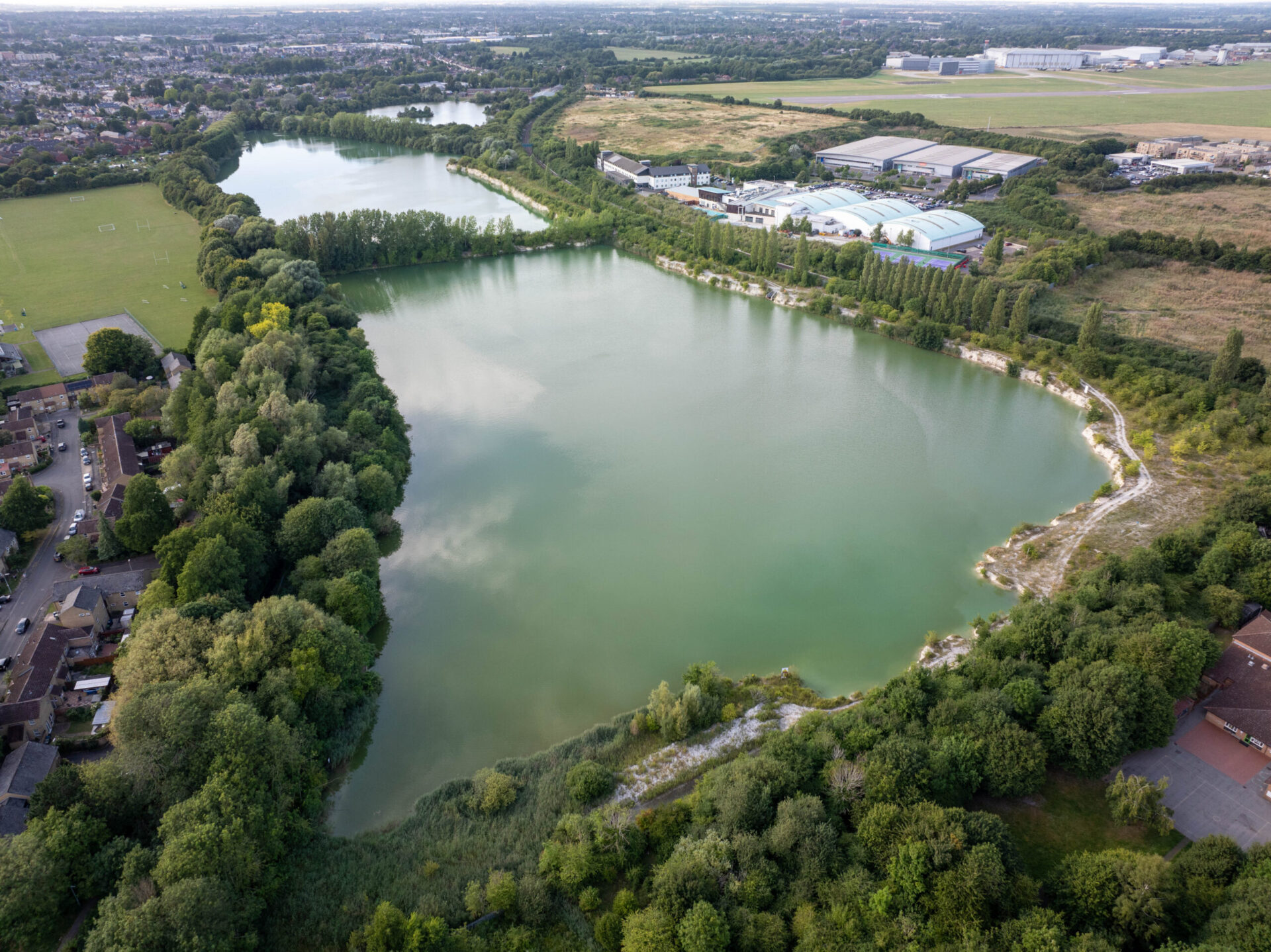Remarkable progress towards a £65 million transformation of Peterborough rail station is evidenced in reports going to the transport and infrastructure committee of Cambridgeshire and Peterborough Combined Authority (CAPCA).
Anna Graham, CAPCA’S transport programme manager, will deliver an upbeat assessment to the committee on January 17 which is expected to ‘sign off’ a 152-page outline business case (OBC).
If approved the scheme will move towards a full business case (FBC) and an expectation that work on the scheme can begin this year through to 2026 with completion by 2027.
Levelling up funding of nearly £48m – secured by CAPCA and Peterborough City Council – will be match funded by partners, Network Rail and through the city council’s Towns Funding bringing the total up to approximately £65 million.
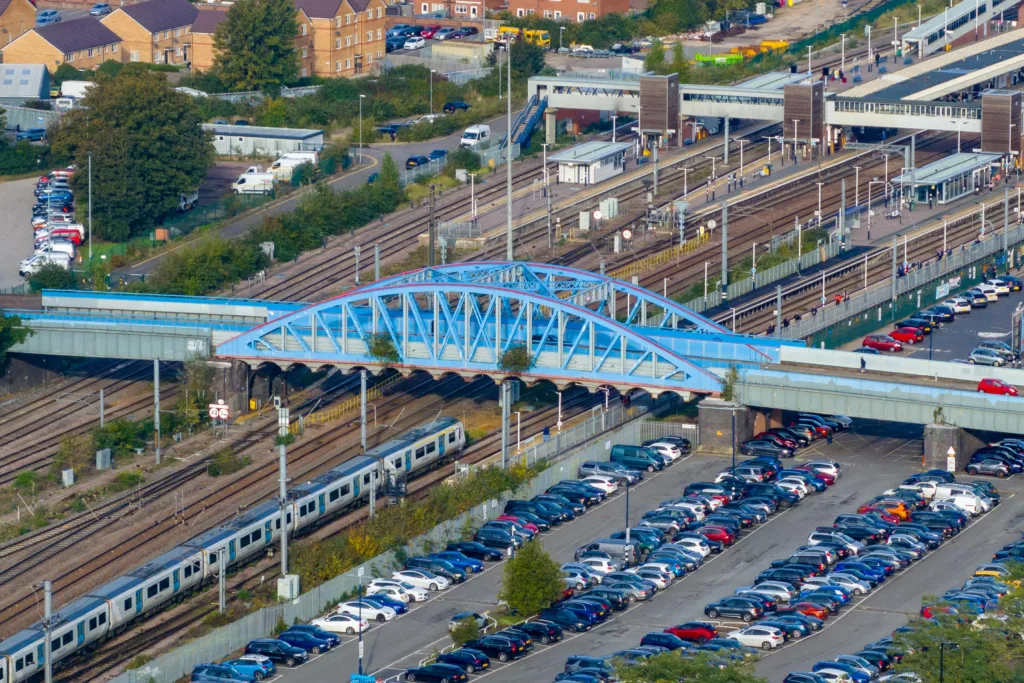
Ms Graham says that “in the context of the levelling up agenda, Peterborough is categorised by the Government as a ‘priority one’ area.
“The allocation of ‘priority one’ status specifies that the Government deems Peterborough as a region in most need of investment through levelling up funding”.
This categorisation is primarily driven by the region’s poor performance against the “need for economic recovery and growth” indicator, as Peterborough falls significantly below the national average in relation to unemployment and skills.
“The bid outlined the need for better connectivity between the station and the city centre, improving the station square layout and active travel route, ensuring visitors can easily find their way when exiting the station,” she says.
“A new western entrance to the station with a car park to create a double-sided station and alleviating pressure on city centre roads.
“The project meets the overarching aims of the Local Transport and Connectivity Plan, including having significant economic impact on the city and regionally, as the city is already well connected to key areas of Eastern England and the rest of the UK.
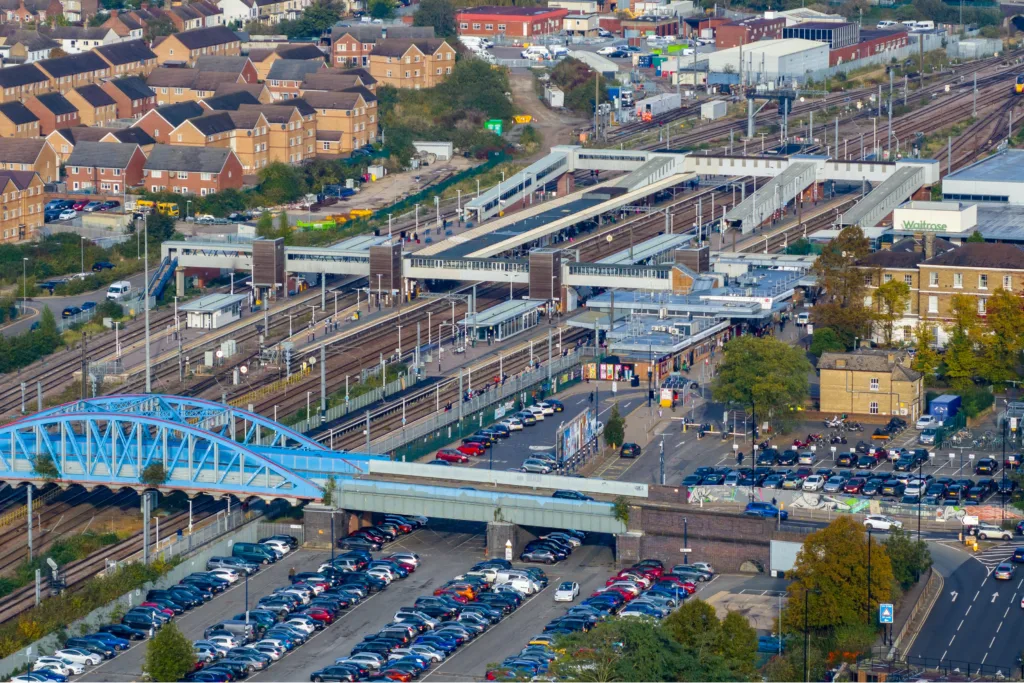
“In addition, it will support Peterborough City (PCC) to attract more knowledge intensive and high-level employers through its transport links and potential commercial and residential space.”
Both the commercial and management cases for the OBC were considered.
In a workshop in November 2023 the steering group, made up of LNER, Network Rail, PCC and CAPCA it was agreed that the most effective and efficient route to delivery would be to separate out the project into four distinct delivery packages, based on issues such as land ownership and type of works, experience of similar projects with a partner identified to lead each.
- Highways and Active Travel – junction improvements on Thorpe Road to provide access to the new station entrance/building/parking areas, amendments to the existing access on the eastern side for taxis and a high quality and accessible route to the city centre for active modes through Crescent Bridge Roundabout – to be led by PCC.
- Rail Station – the new station entrance/building on the west side and extension/improvements to the existing station – to be led by the rail industry (either LNER or Network Rail)
- Multi-Storey Car Park – the new MSCP adjacent to Crescent Bridge – to be led by Network Rail.
- Public Realm and Station “Floormats” – the station frontage for the new entrance, with access for all modes from the new junction on Thorpe Road and surface car parking, and public realm and the new station square on the east with revised pick up/drop-off facilities, accessible car parking and enhanced public realm – to be led by PCC.
In addition, the Network Rail Maintenance Delivery Unit (MDU) will be moved to provide all the necessary space on the western side of the rail line.
The current anticipated cost for the relocation of the MDU is around £15 million, and this will act as a “complementary investment” to the project, with Network Rail responsible for the cost of the move.
The MDU spans several plots of land to the west of Peterborough station and provides a “physical base” for maintaining the railways.

Part of this site includes the Grade II* listed Crescent Wagon Repair Shop, said to be the only surviving all timber wagon shop in Britain.
The OBC says the MDU sits on high value land, in close proximity to Peterborough Station, Crescent Bridge and West Town Primary Academy, and consists of a number of temporary offices as well as areas given over for plant and machinery.
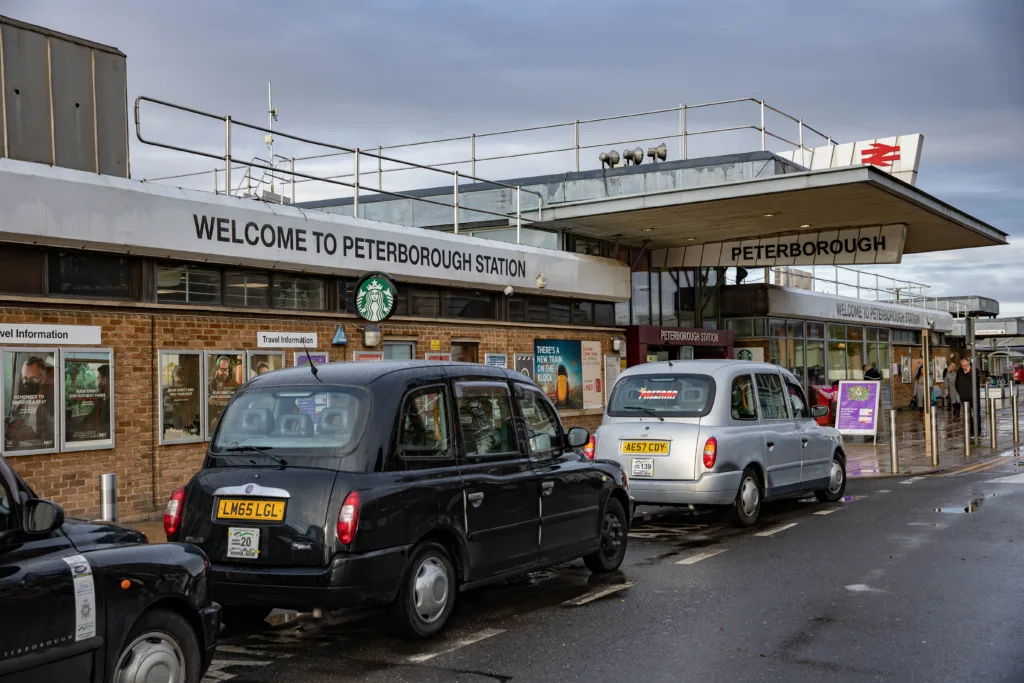
The committee will hear that to maintain momentum and with a mind to the March 2026 deadline for the levelling up fund allocation, the city council will continue to lead the next stage of development work for the whole project.
They will also try to confirm a possible extension to existing contract arrangements and bring in specialist skills as necessary including preparation of the FBC.
For many travellers, the response will be not before time.
The OBC reveals that a survey of passengers shows that Peterborough Station scored most poorly in relation to retailing options and first-class lounge facilities, with a 31.2 per cent satisfaction for retailing options (compared to a 47.9 per cent average for the entire LNER route) and a 40.2 per cent satisfaction for first class lounge facilities (compared to a 57.9 per cent average).
“This shows the station is underperforming on the LNER route, largely due to its inadequate facilities,” says the OBC.
“The station currently comprises lacks a centralised point for waiting and interchanging passengers, which significantly impacts upon passenger satisfaction.
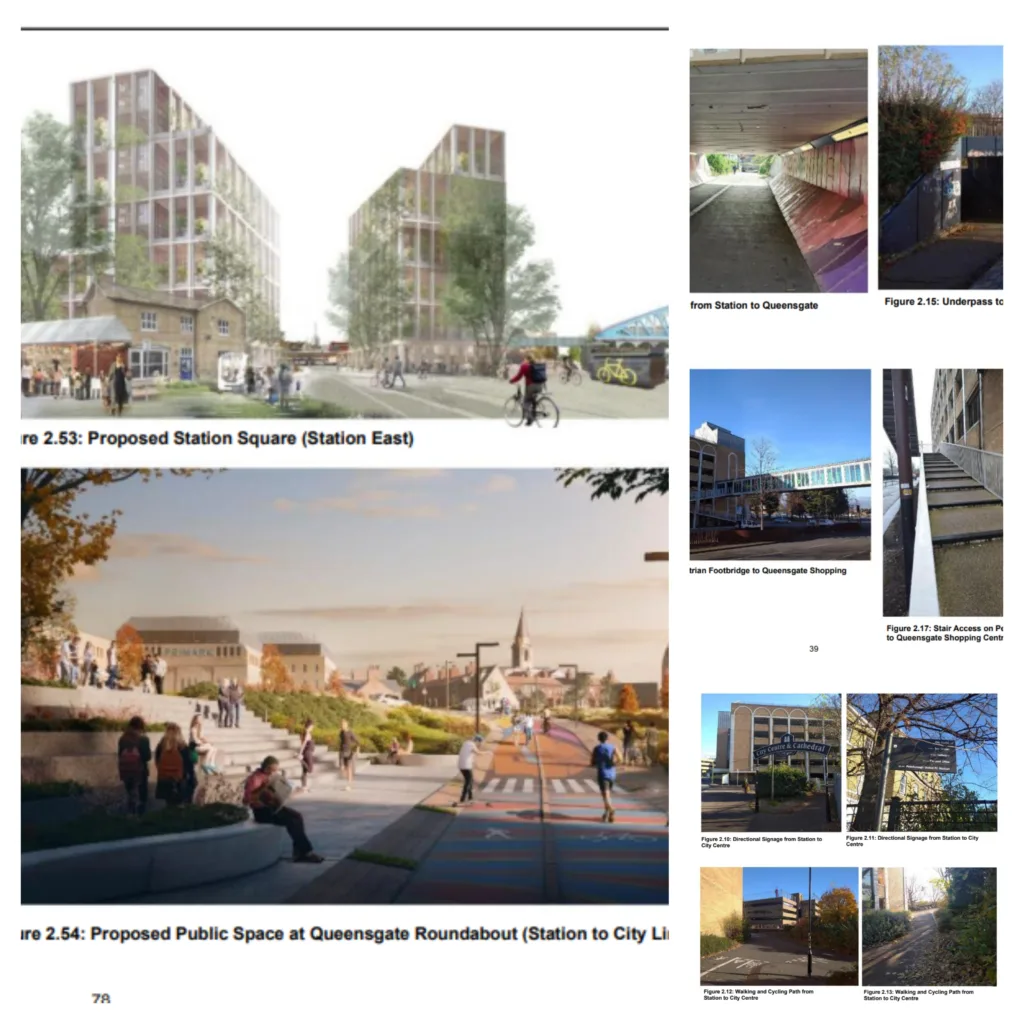
All systems go for Peterborough station improvements: Levelling up funding of nearly £48m – secured by CAPCA and Peterborough City Council – will be match funded by partners, Network Rail and through the city council’s Towns Funding bringing the total up to approximately £65 million. Some of the images from the outline business case
“Also, there is a lack of complete canopy covering several platforms, which is particularly problematic, especially in times of inclement weather, considering the large numbers of passengers using the station.
“There is also a shortage of quality food and beverage, meeting and conferencing facilities around the station compromising the overall customer experience.
“Post-COVID-19 work, and leisure patterns are likely to see migration from centres such as London to a more dispersed model, and Peterborough is ideally suited to continue its upward population growth in addition to acting as a focus for local commuters in East Northamptonshire, South Lincolnshire, Rutland and North West Cambridgeshire.”
Taken as a whole, the area is said to have the potential to create around 4,000 new jobs, support at least 700 new homes and create just under 1 ha of new public realm.
“Key to starting the delivery of this vision will be a catalytic set of interventions centred around Peterborough Station,” says the OBC.
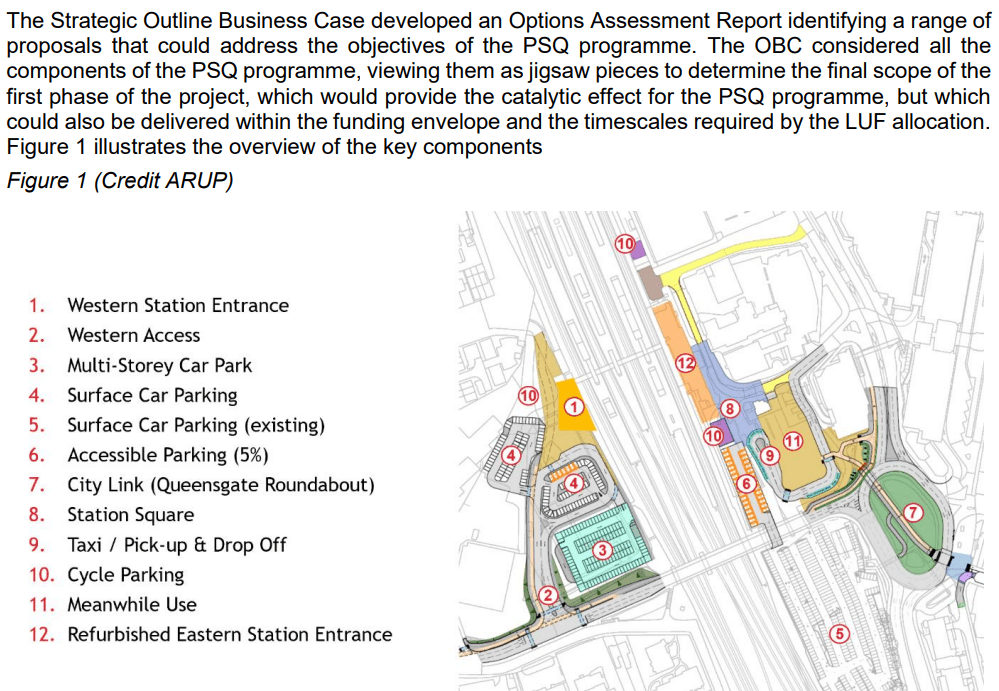
All systems go for Peterborough station improvements: Levelling up funding of nearly £48m – secured by CAPCA and Peterborough City Council – will be match funded by partners, Network Rail and through the city council’s Towns Funding bringing the total up to approximately £65 million. Some of the images from the outline business case
In the 2018/19 period, the station saw an annual throughput of 5 million passengers, including 960,000 who used Peterborough as an interchange for services to other destinations.
While numbers declined during the COVID-19 pandemic, by 2021/22 there was a partial recovery with 4.2 million passengers, reflecting the continued recovery of rail travel to pre-pandemic levels in the UK.
LNER overall have been one of the leading train operating companies (TOCs) in terms of this recovery, with January to March 2023 passenger numbers reaching 111 per cent of the levels seen in the same period in 2019.
East Midlands Railway, another TOC serving Peterborough, has also exceeded passenger numbers in 2019, carrying 101 per cent of the passengers from pre pandemic levels four years ago.
A curious inclusion is the reference to there being no first-class lounge at Peterborough for passengers – this was previously located in the Great Northern Hotel until 2022.
“Station staff are also impacted by the station facilities,” says the OBC.
“The station office facilities are limited in size and barely meet the needs of the current work force.
“The lack of quality facilities limits staff in delivering their operational responsibilities and providing the highest experience to passengers as well as having a negative influence on the ability to recruit and retain talent.
“This similarly relates to the Great Northern Hotel, which previously functioned as a staff break room and first-class lounge for passengers, but now no longer provides these facilities since the hotel’s change of use to become a hostel for asylum seekers, although it expected to be returned to regular use by the end of January 2024.
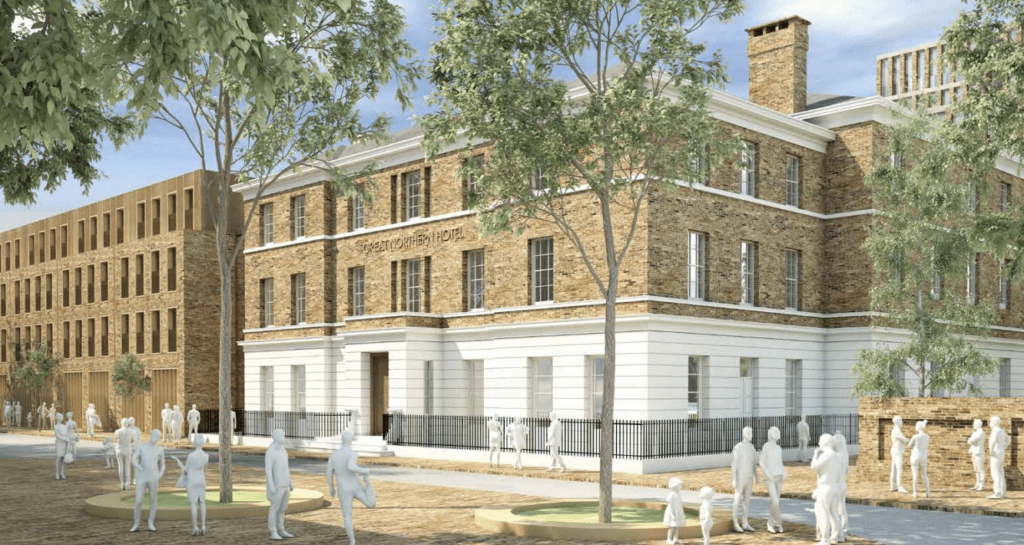
“However, it is clear that an upgrade is required in relation to both customer and staff facilities, in order to meet these basic occupational standards.”
But the OBC says little more about the Great Northern, simply referencing the fact it secured planning approval in 2020 to redevelop the hotel.
The consented plans include:
Demolition of the poor quality 1970s extension to the hotel and some single level outbuildings to the north.
A new hotel extension is proposed to the north with a carefully detailed junction to the existing hotel.
A new office building is proposed on the site of the extension with active retail frontage at ground floor.
Parking is concealed on the ground floor, with the entrance off Station Road.
“This redevelopment has not yet been started since the approval of planning permission, and this is linked to the hotel currently being used as temporary accommodation for asylum seekers,” says the OBC.
“However, the Home Office announced in October 2023 that the hotel would no longer be used for this purpose and that asylum seekers will be relocated from the site by the end of January 2024.”
On other issues the OBC notes that the city council will accept responsibility for any cost overruns over and above the levelling up contribution of £47.85 million.

